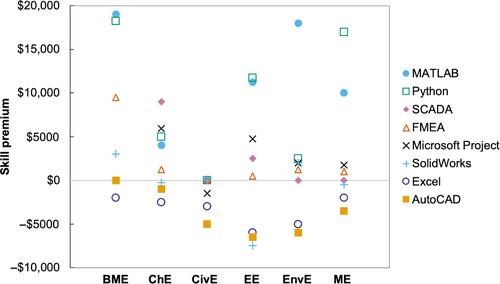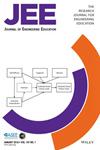What engineering employers want: An analysis of technical and professional skills in engineering job advertisements
Abstract
Background
Engineering curricula are built around faculty and accreditors' perceptions of what knowledge, skills, and abilities graduates will need in engineering careers. However, the people making these decisions may not be fully aware of what industry employers require for engineering graduates.
Purpose/Hypothesis
The purpose of this study is to determine how industry employer-sought professional and technical skills vary among engineering disciplines and levels of education.
Design/Method
Using a large sample (n = 26,103) of mined job advertisements, we use the O*NET skills database to determine the frequencies of different professional and technical skills for biomedical, civil, chemical, electrical, environmental, and mechanical engineers with bachelor's, master's, and PhD degrees.
Results
The most frequently sought professional skill is problem-solving; the most frequently sought technical skills across disciplines are Microsoft Office software and computer-aided design software. Although not the most frequently requested skills, job advertisements including the Python and MATLAB programming languages paid significantly higher salaries than those without.
Conclusions
The findings of this study have important implications for engineering program leaders and curriculum designers choosing which skills to teach students so that they are best prepared to get and excel in engineering jobs. The results also show which skills students can prioritize investing their time in so that they receive the largest financial return on their investment.


 求助内容:
求助内容: 应助结果提醒方式:
应助结果提醒方式:


